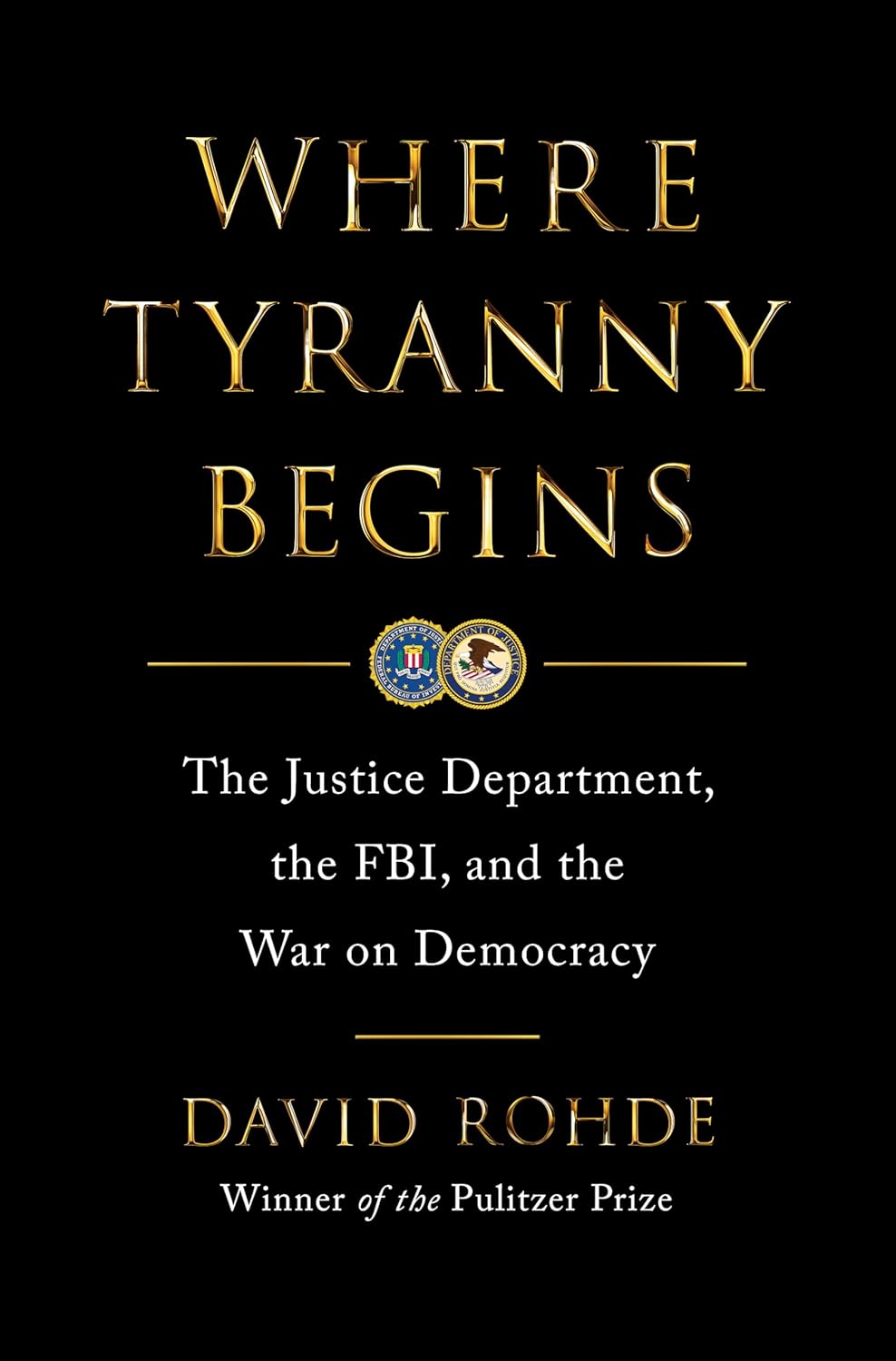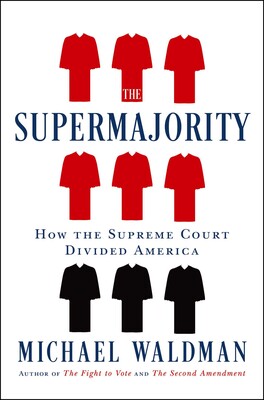Where Tyranny Begins: The Justice Department, the FBI, and the War on Democracy
- By David Rohde
- W.W. Norton & Company
- 304 pp.
- Reviewed by Eugene L. Meyer
- September 9, 2024
Do voters have the tools to wrest power from a strongman?

Where Tyranny Begins: The Justice Department, the FBI, and the War on Democracy could’ve had a shorter subtitle. “A Warning” would have sufficed to signal this remarkably timely book at this moment in our history. Released less than a week after the Democratic National Convention — culminating a month of unprecedented events in our politics, with President Joe Biden ending his re-election campaign and passing the torch to Vice President Kamala Harris — there is almost an anticlimactic feel to it. Have events overtaken the warning Where Tyranny Begins underscores?
But “Lest We Forget” as an alternate subtitle might also apply to this lesson in history so recent that it behooves us both as readers and as citizens to take heed. Because, in this telling, even the too often naïve or feckless good guys failed us as a shameless, morally challenged leader sought to discard not only the niceties and norms of our aspiring democracy but also the rule of law that has long governed the republic.
Two-time Pulitzer Prize winner David Rohde is well-equipped to tell this story. A former executive editor of the New Yorker website, Rohde is the national-security editor at NBC News. The author of three other books, Rohde has a résumé which includes stints with the New York Times, Reuters, and the Christian Science Monitor — and seven months in captivity under the Taliban, which kidnapped him in November 2008.
Rohde, therefore, knows more than a little bit about tyranny. Applying that knowledge to the United States, he guides readers on an unsettling trip down memory lane, recalling how Donald J. Trump as president “used threats, co-option, and conspiracy theories to bend DOJ and FBI officials to his will.” He asserts:
“The specter of political ruin and public shame that had prompted American presidents to obey democratic norms for more than two centuries had been exposed as a paper tiger.”
At the same time, Rohde writes, after Trump’s term ended in a violent insurrection he incited on Jan. 6, 2021, Attorney General Merrick Garland, a Democrat, and other prosecutors failed to hold him to account. Time and again, they allowed themselves to be played and delayed by the 45th president and his army of skilled if unprincipled lawyers.
As Rohde notes, citing the New York Times, “By trying to avoid even small mistakes, Garland risked making a large one: creating an opportunity for Trump to delay his federal trials until after the 2024 election.” How prescient, because that is precisely what has happened. Not only Garland, Rohde writes, but also “career DOJ officials were slow to recognize the dangers that Trump presented to public trust in the department they loved.”
While Republicans in Congress marched in lockstep with Trump through two impeachment trials, Democrats acted as if simply sharing the weight of evidence against the former commander-in-chief would bring justice. This mindset carried over into the Biden administration, as AG Garland moved glacially to appoint a special counsel to prosecute Trump’s efforts to prevent the peaceful transfer of power after he’d lost re-election and then improperly hoarded classified documents that belonged to the United States at his Mar-a-Lago compound.
Garland’s caution, Rohde writes, left it to the U.S. Supreme Court, with its Trump-appointed conservative supermajority, to drag its feet in considering Trump’s claims of presidential immunity for any criminal acts. Rohde sees the existential danger in this, as the justices entertained arguments already rejected by appellate judges. Prior to the book’s publication, the Supreme Court immunity ruling that Rohde feared again upended efforts to hold Trump accountable for his alleged crimes.
Time and again, Rohde writes, the best of intentions were inadequate to meet the challenges of a man who, as president, and then as ex-president, was ready to employ any tactic and to exploit every loophole to unbalance the scales of justice. If the accused is guaranteed a speedy trial, the public deserves no less. As Rohde demonstrates, justice delayed is justice denied.
Reading Where Tyranny Begins, one comes away with a sense of foreboding about the future. Is it really true that the past is prologue? Rohde obviously hopes not. Whether a majority of the country and of the Electoral College share that sentiment will be up to voters in November.
As Rep. Jamie Raskin (D-Md.) said in 2021, Rhode notes, defeating Trump at the ballot box remains the central challenge. “We need to win this struggle politically,” Raskin said. Given recent events at the Supreme Court and in the presidential campaign, there seems no other way.
Eugene L. Meyer, a member of the board of the Independent, is a journalist and author of, among others, Five for Freedom: The African American Soldiers in John Brown’s Army and Hidden Maryland: In Search of America in Miniature. Meyer has been featured in the Biographers International Organization’s podcast series.
.png)
